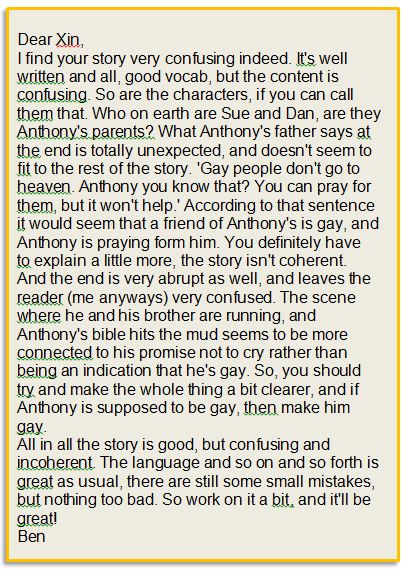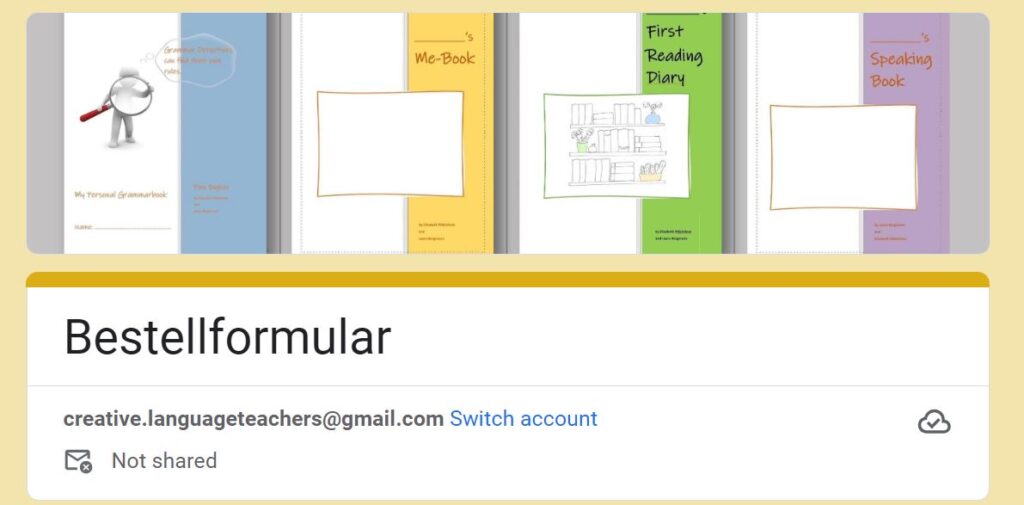 Writing good texts is a lot of work. Even professional writers do not pour out their masterpieces in one session — they go back and keep revising and polishing until the text is a perfect, shining piece that can be “unveiled” to the public.
Writing good texts is a lot of work. Even professional writers do not pour out their masterpieces in one session — they go back and keep revising and polishing until the text is a perfect, shining piece that can be “unveiled” to the public.
Peer Conferencing:
Peer conferencing can be very helpful for both parties. The author of the text will get helpful feedback on different levels and the feedback giver will learn to read a text critically. Depending on the specific genre and aims of the writing task, both learners will focus on different aspects of a text such as formal aspects, accuracy, content, organization, register etc.
Peer conferencing is not easy for learners and must be introduced and practiced as a specific skill. The first peer-comments may be very flattering, unspecific or even aggressive. Students who have received helpful feedback from their teacher, will easily learn this skill by imitating their teacher’s feedback behavior. It also helps to give students clear feedback rules and to teach an introductory skills-lesson on giving feedback using one text and inviting the class to suggest improvements.
Feedback samples of young learners: age 12
Click on the samples to see them in full size.
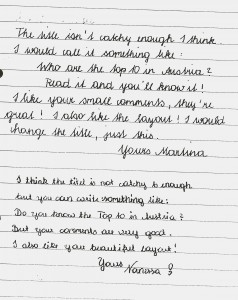 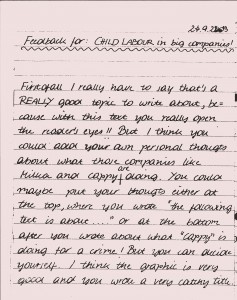 |
|
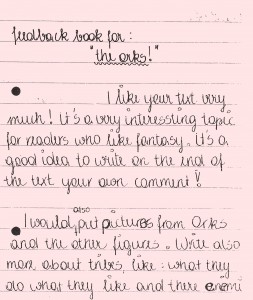 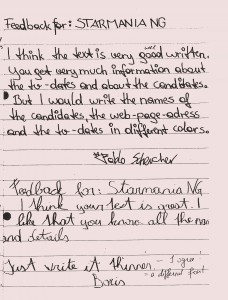 |
|
|
|
|
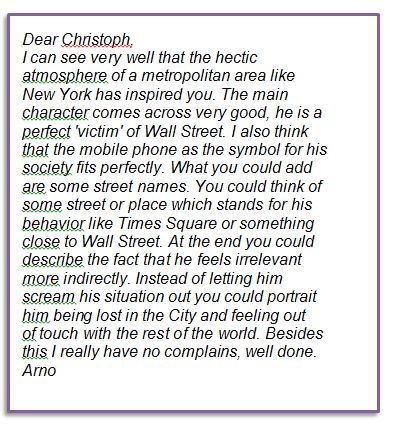  |
|
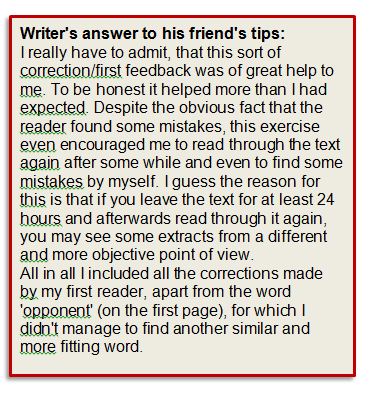 |
|
The following peer-conference forms may also be helpful in the beginning stages or after introducing a new genre. Each of these forms focuses on a particular text-type and guides the learners through the important features of this genre. After a few rounds of guided feedback, most learners will be able to give helpful, constructive feedback without the help of such forms.
Have a look at the feedback forms and the free learner comments below:
Peer-editing form for magazine articles
Peer-editing form for short-stories
Peer-editing form for spooky stories (young learners)

